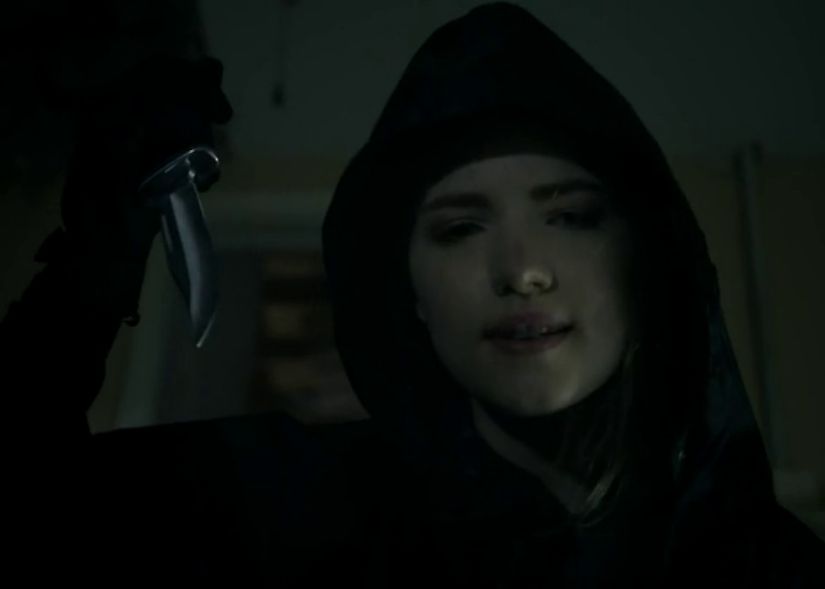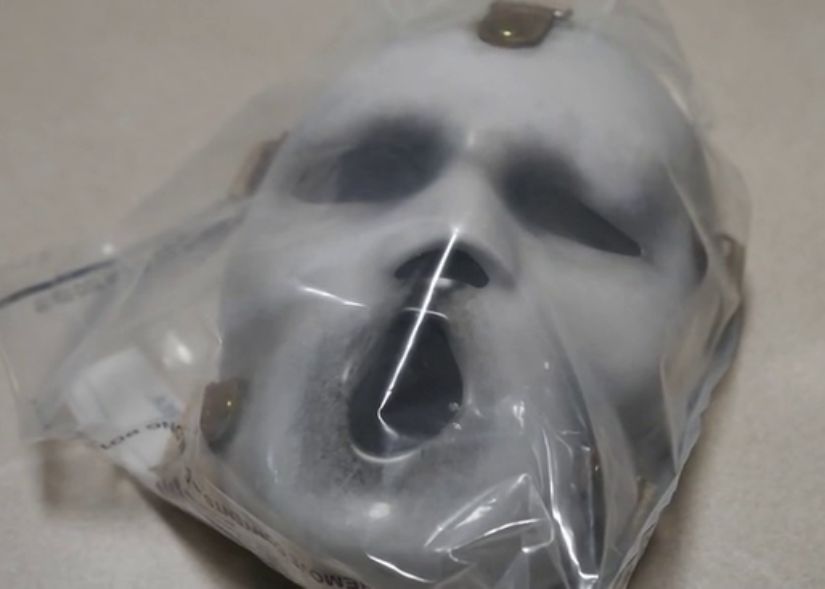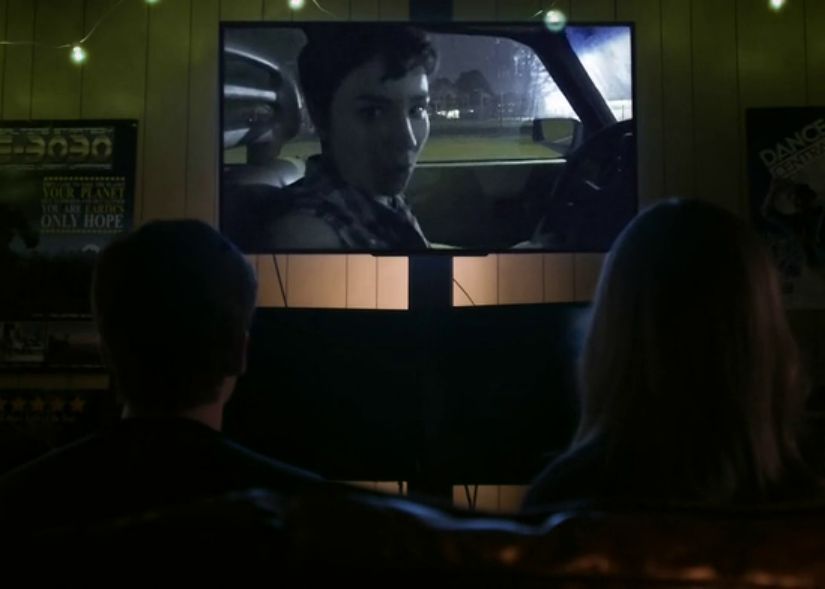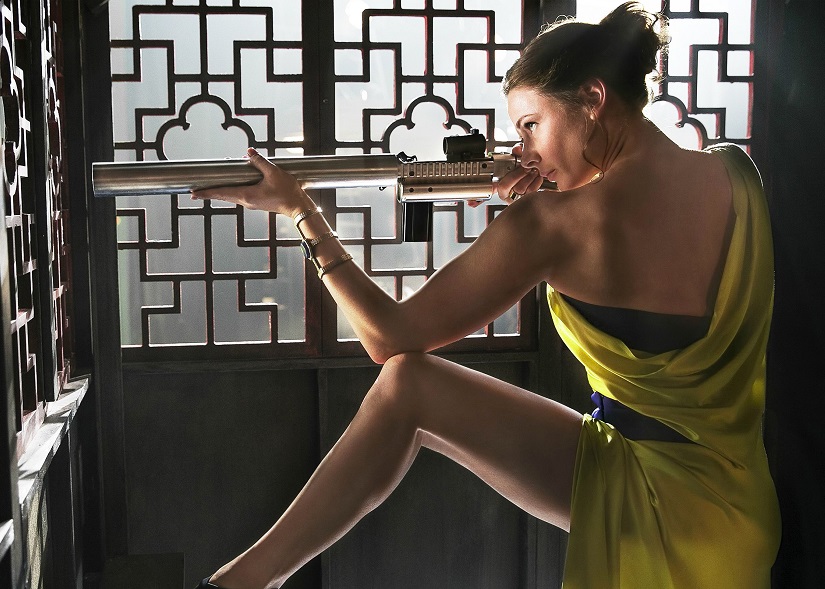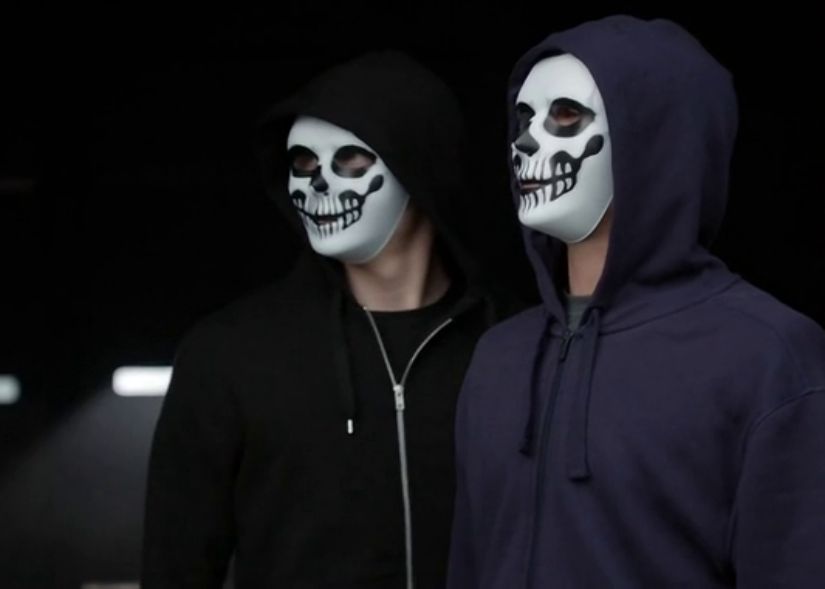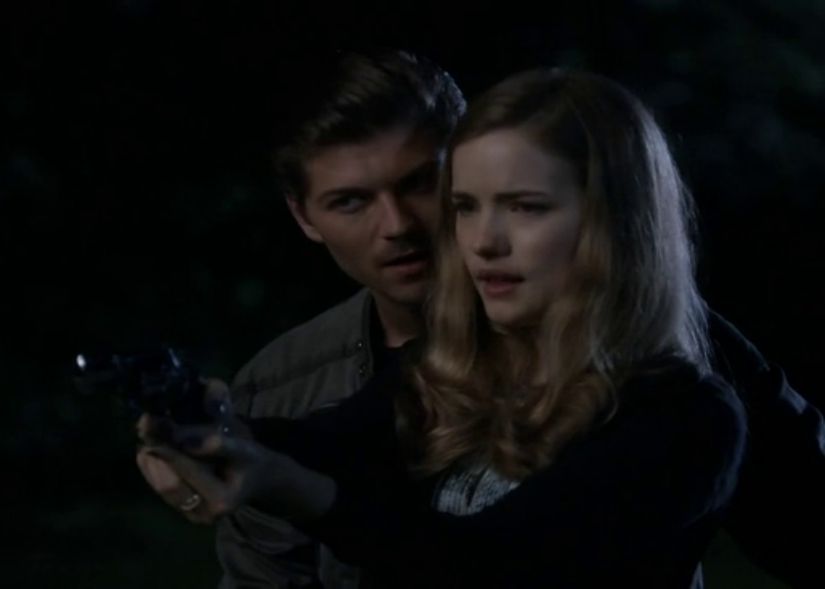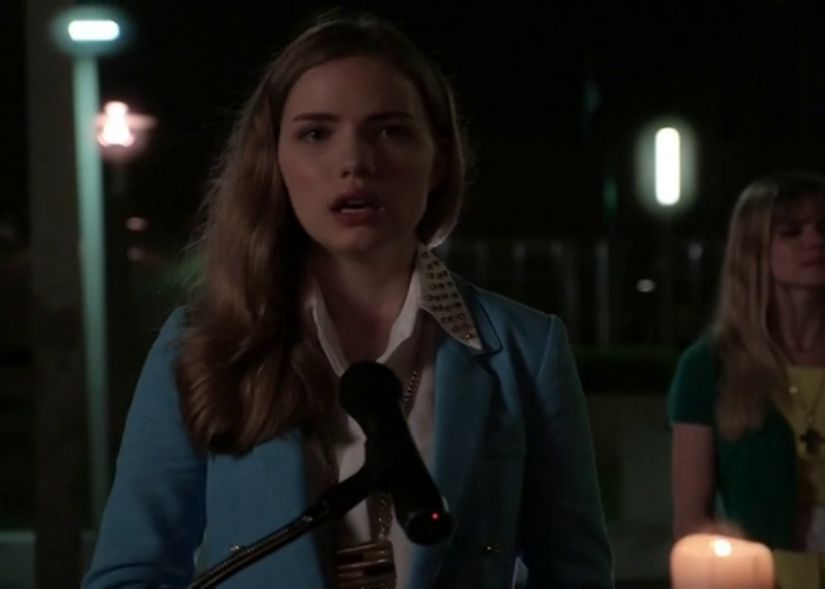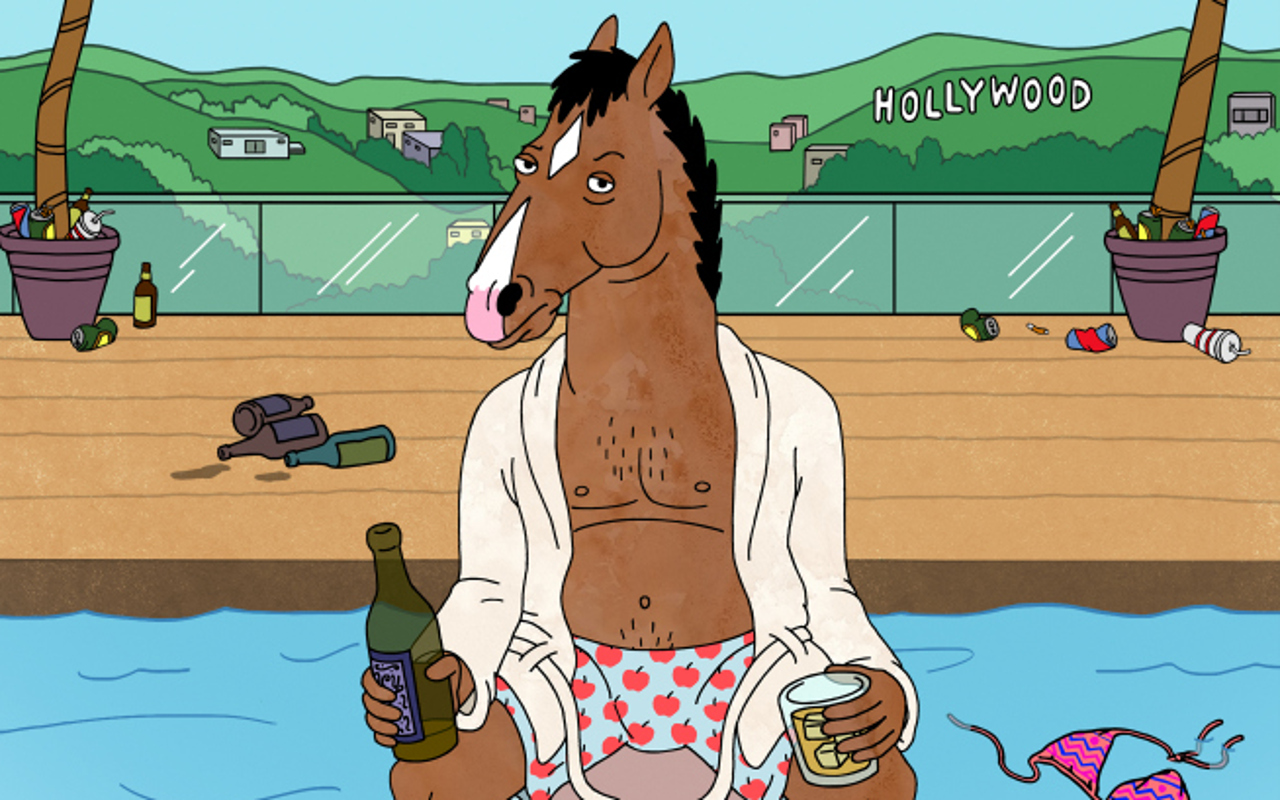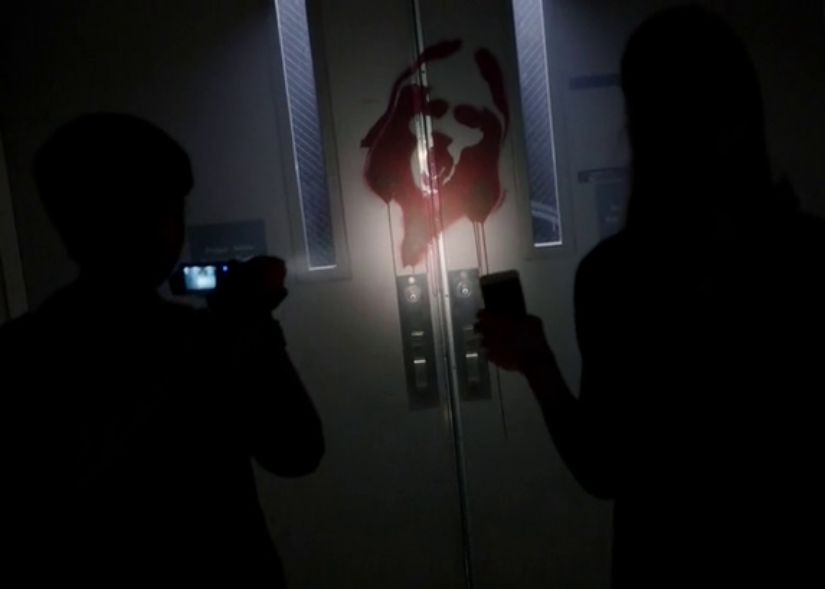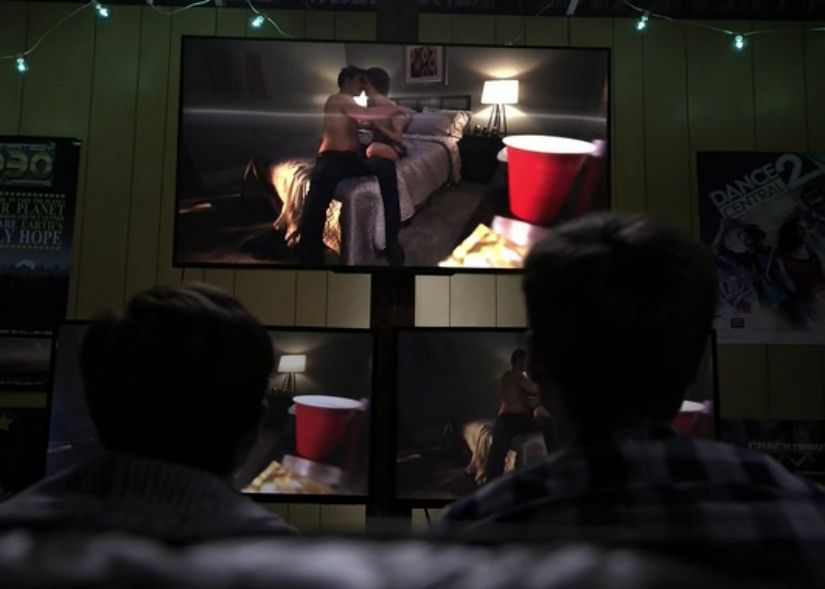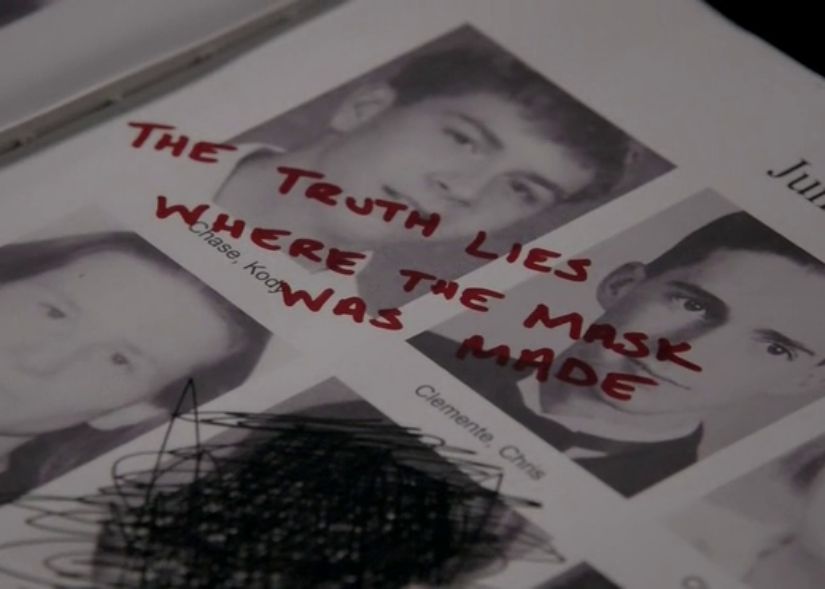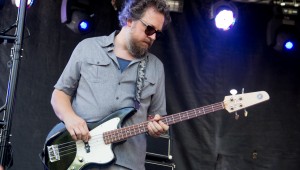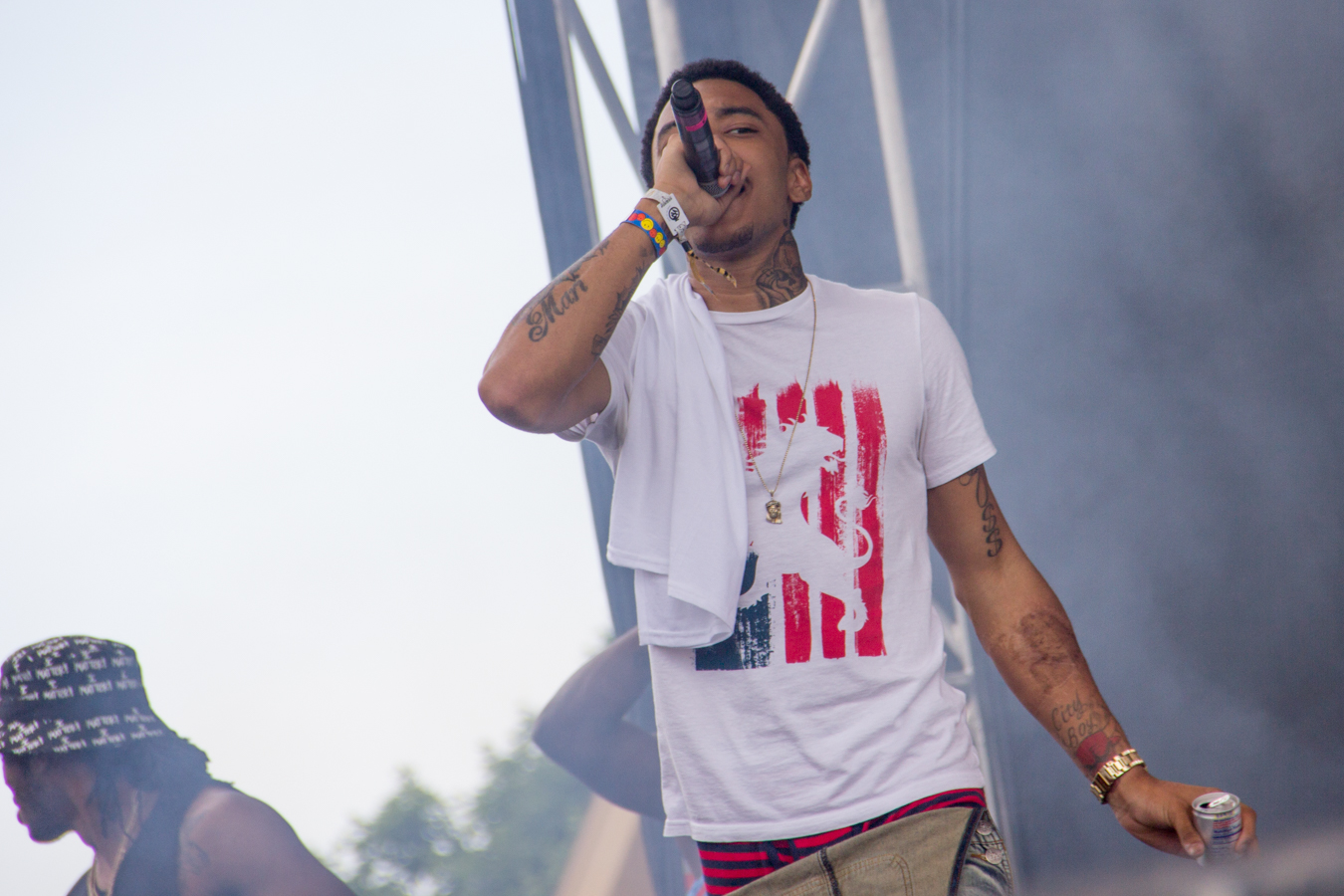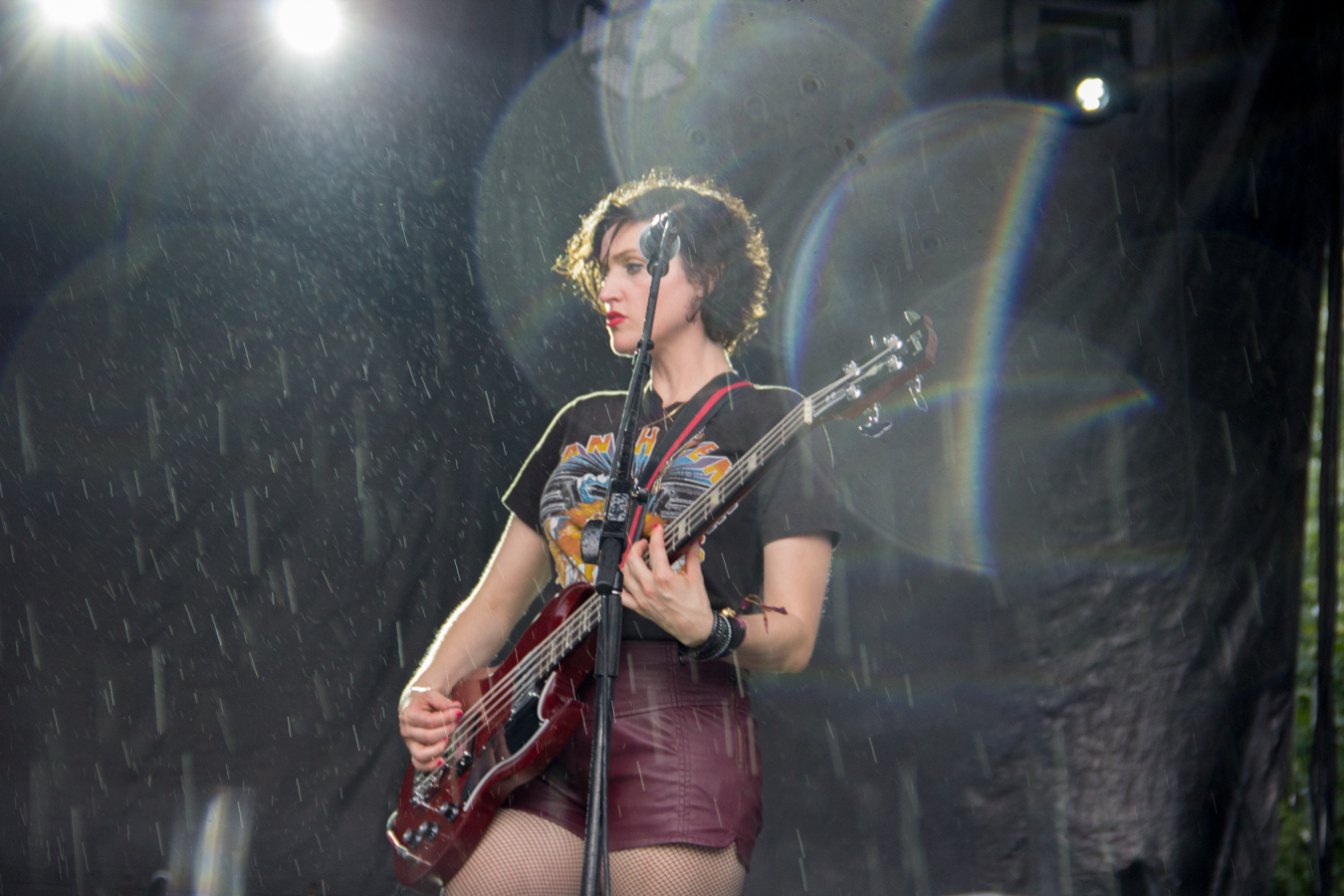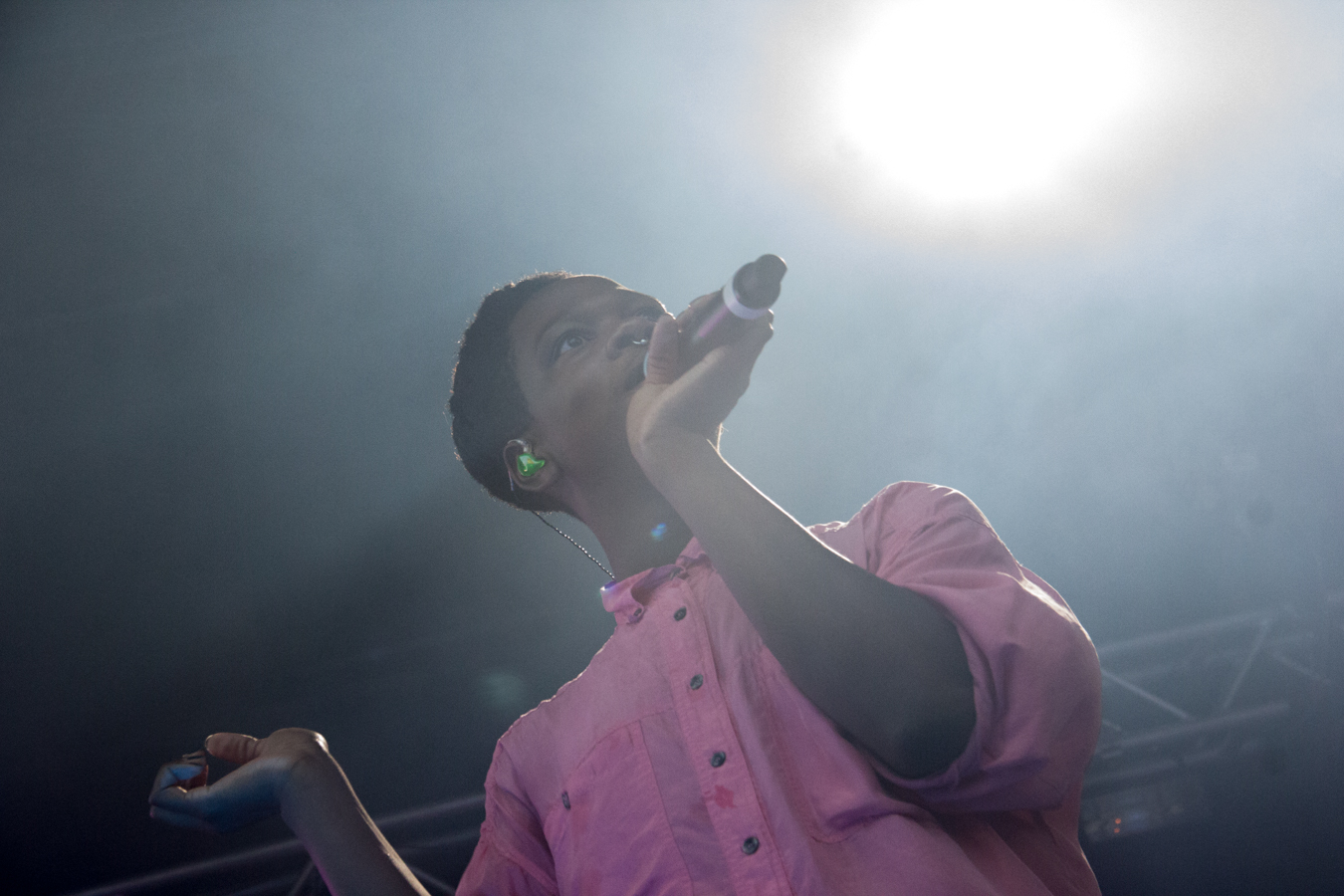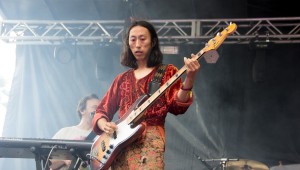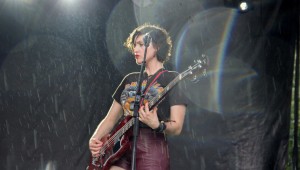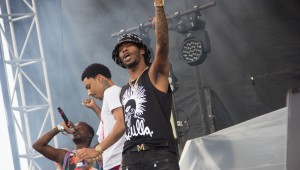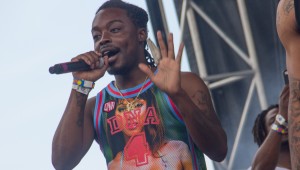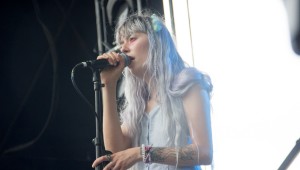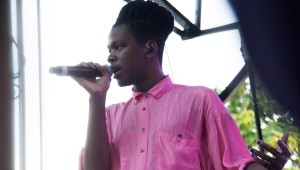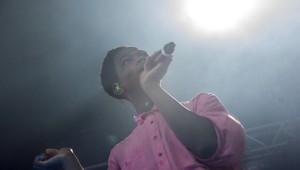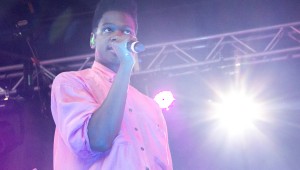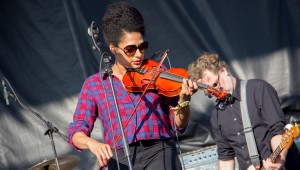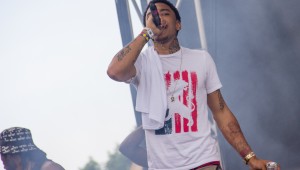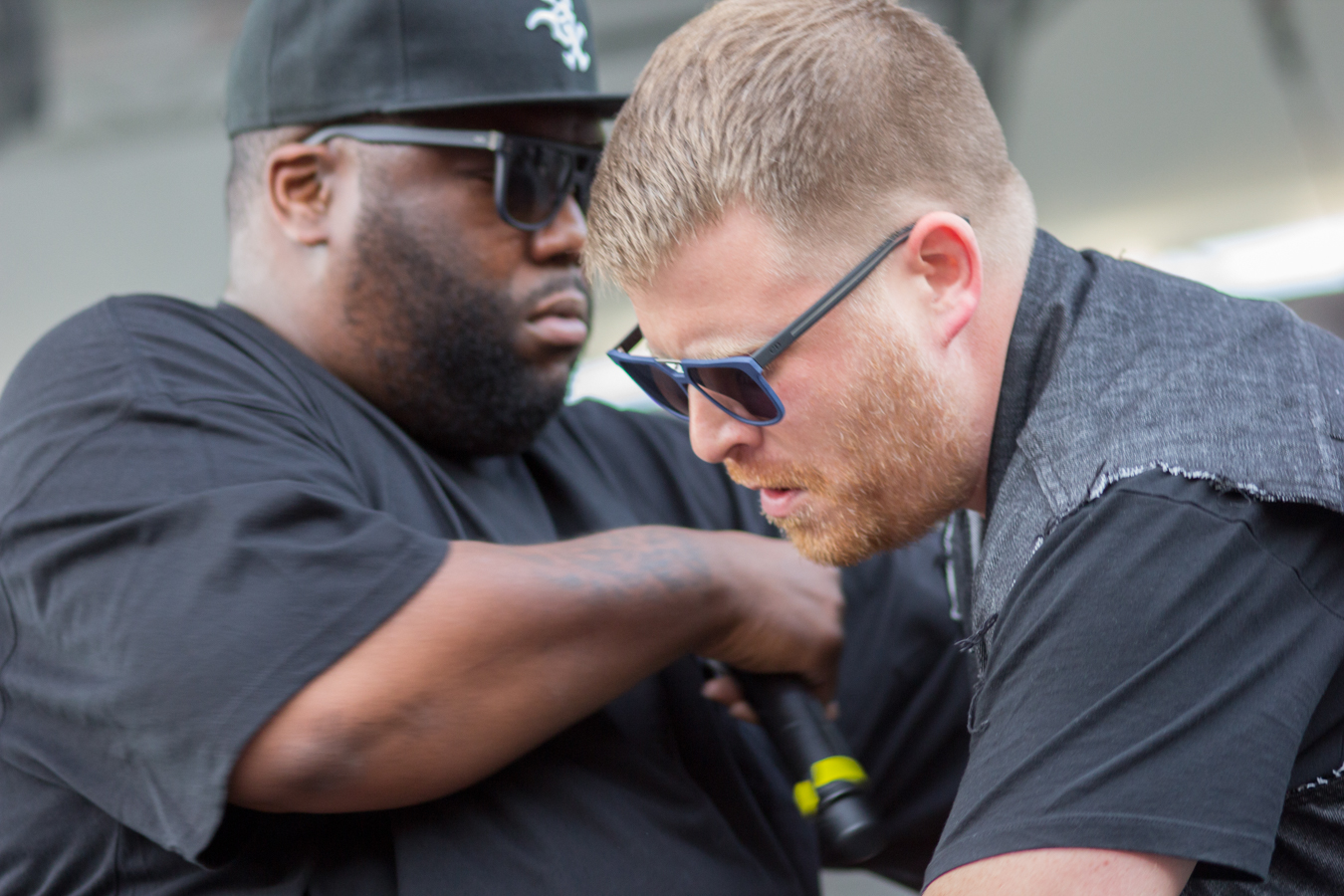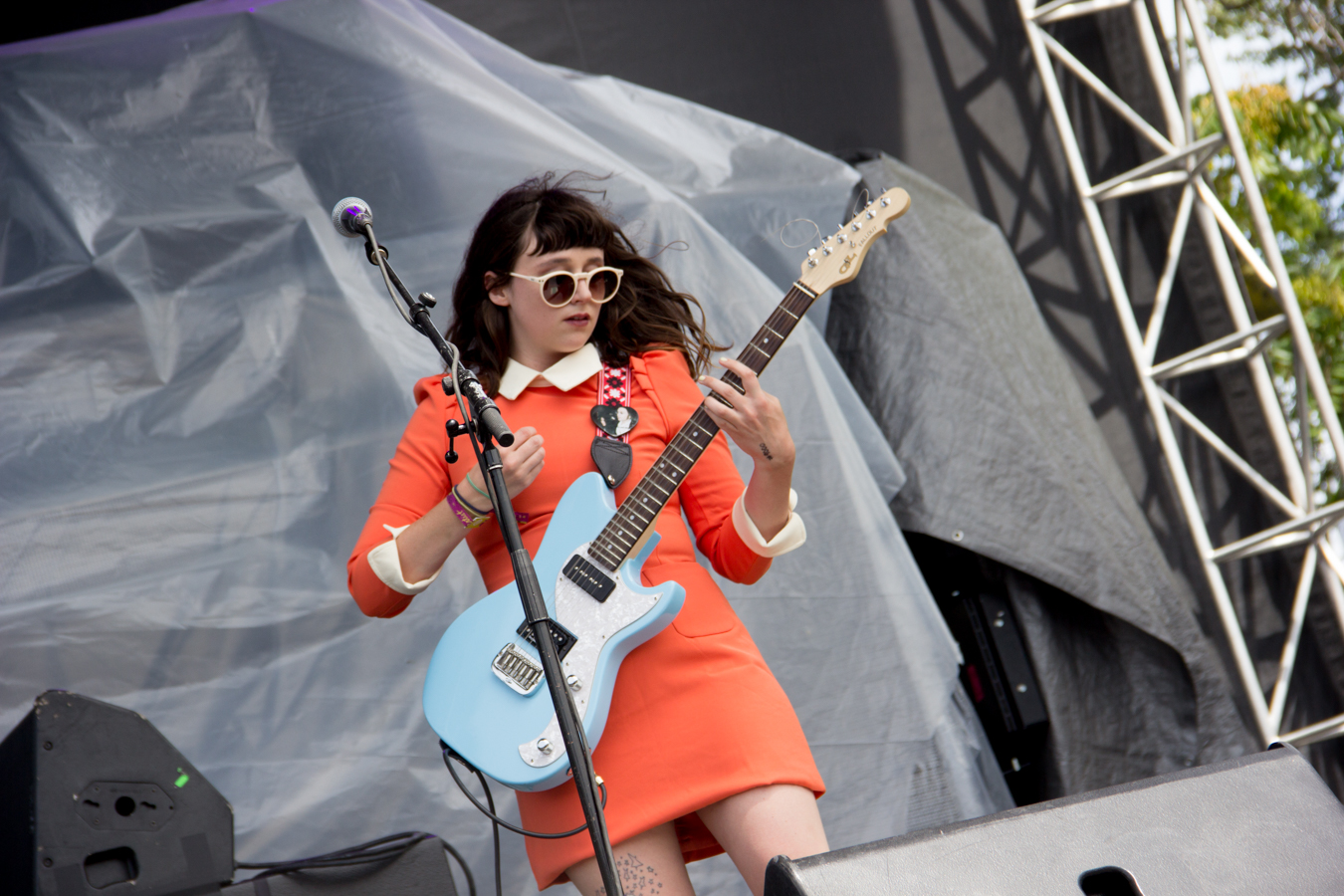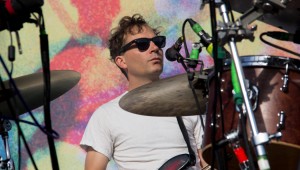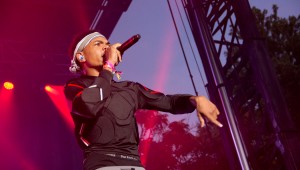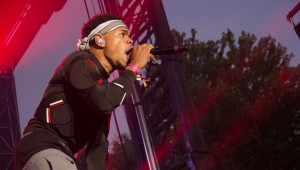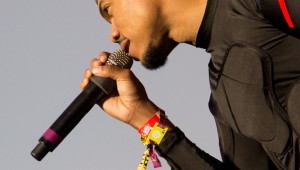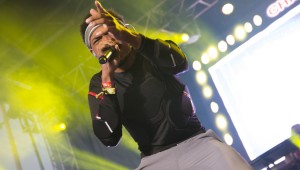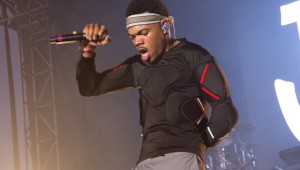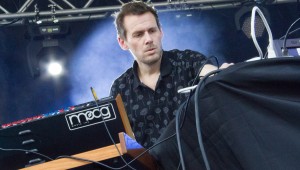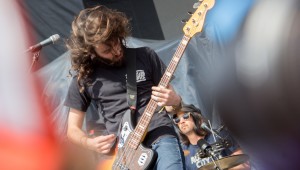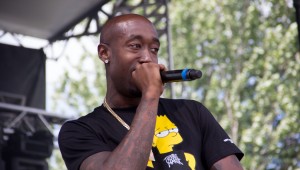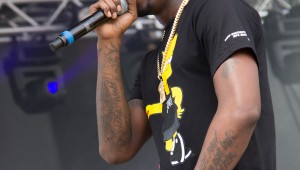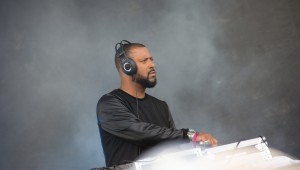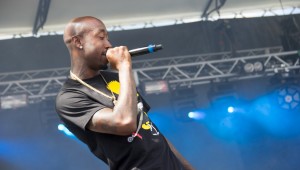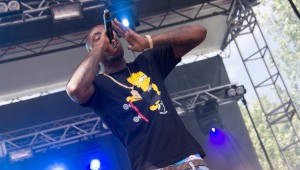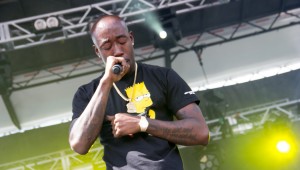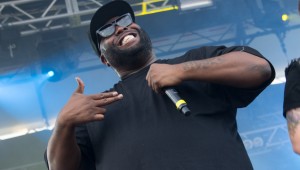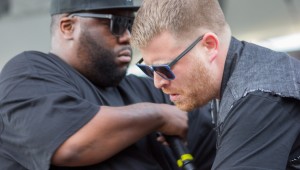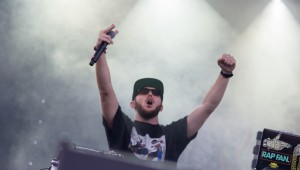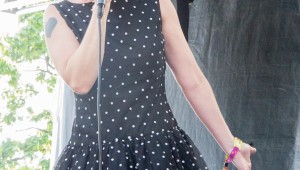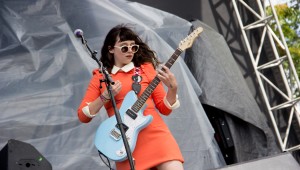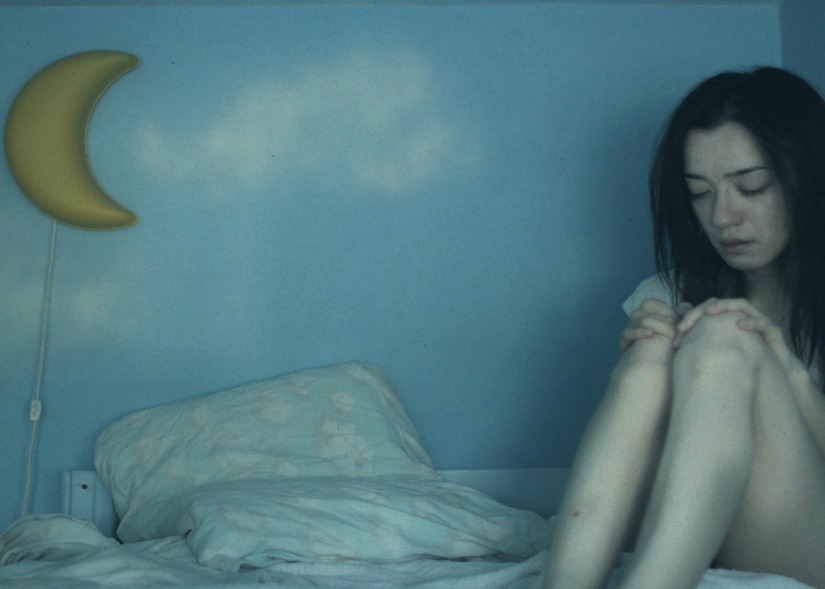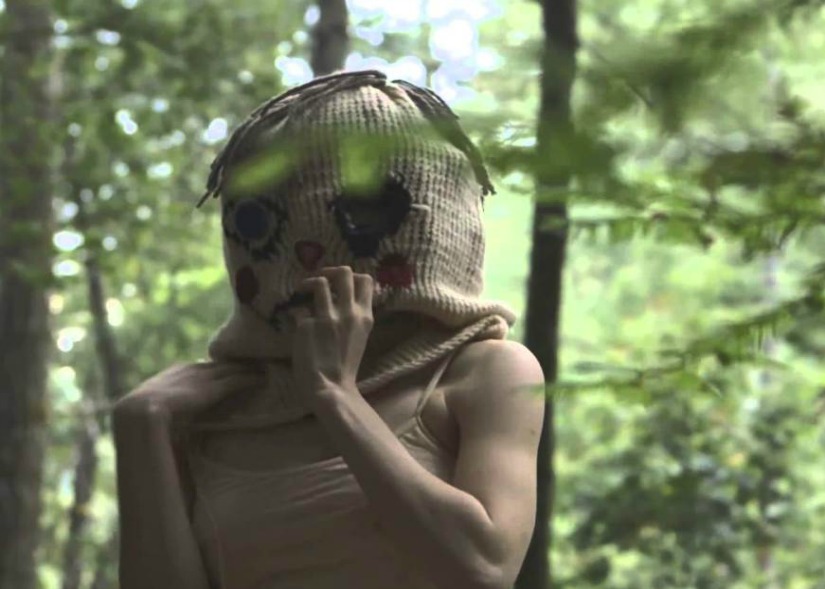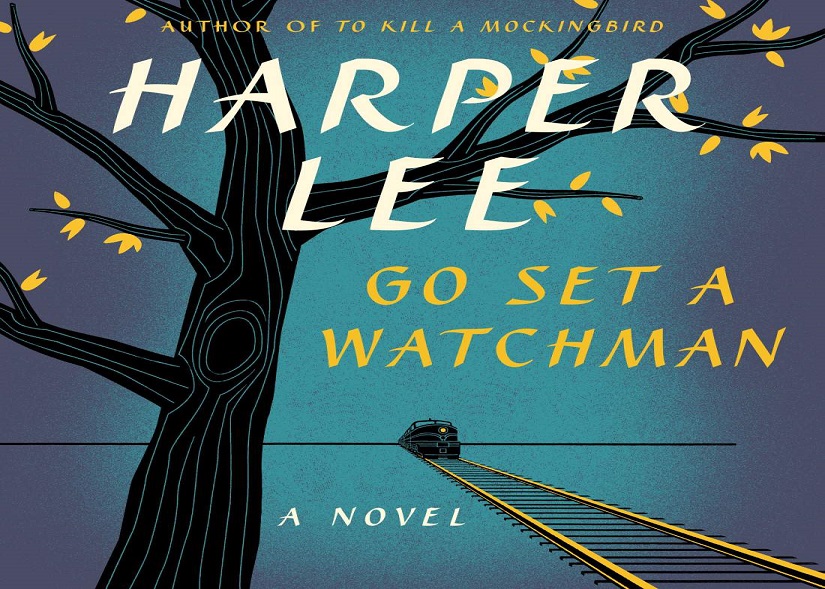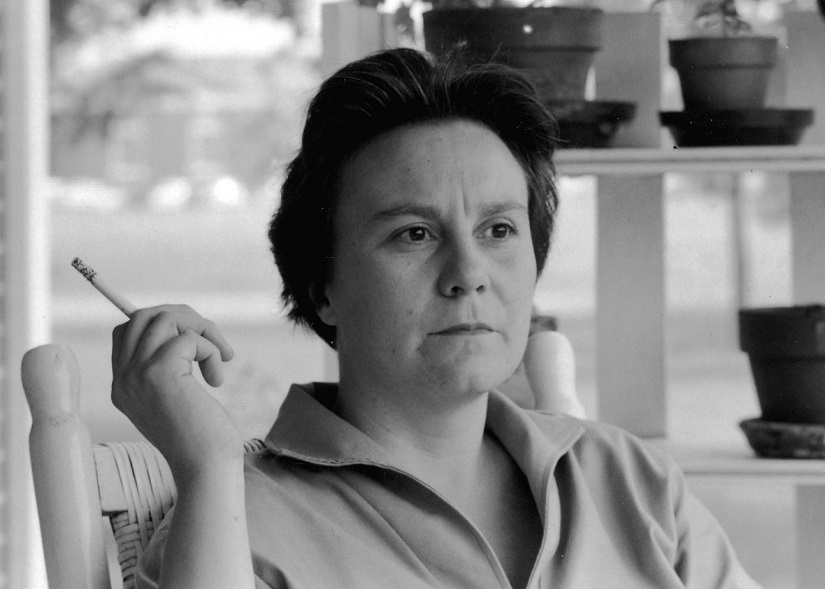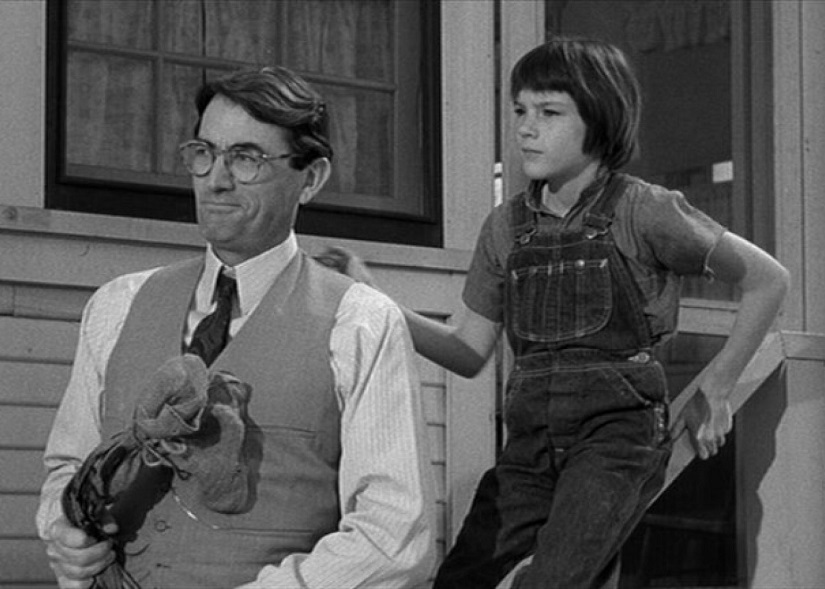[Review] MTV's Scream: Betrayed
As I noted last week, I'm in full on hate watch mode for Scream at this point. But this week's episode managed to turn that around just a bit. I don't really know what's going on at this point since there are so many poorly written plot points and character motivations, but I think it's lumping together to get to that same apex of entertaining awfulness that made "Wanna Play A Game?" such a fun episode.
"Betrayed" gives us multiple suspects, more of the adorable podcaster Piper Shaw, and sequence that's so badly thrown together it actually circles around to being good again. Am I still watching the same show here?
At the beginning of the episode, Emma has a dream that's laid out like most generic Scream sequences. It's pretty dumb overall since you know Emma's never going to be in actual danger, but her dream actually works for the rest of the show. You get the sense that she blames herself for the killings (as she should because she's terrible), and it sets her on a great path of self destruction. In horror fiction terms, she's going to make a lot of ludicrous decisions going forward, and it's definitely going to be fun watching it go down. Following that, there's this scene between Noah (the horror nerd) and his best friend Audrey (the girl who was outed in the beginning of the show, she really hasn't been important until now hilariously enough) as Noah has such a Scream-esque speech that once again summarizes the show's mystery as the characters he mentions walk through the background behind him. You just can't make this stuff up, folks. It's pretty wonderful. We also have a new detective in town who's doing her job, but terribly. She was introduced a few episodes ago, but hasn't had any bearing on the story until now. Basically she starts bringing in all these kids for questioning without really caring how laws work. It's pretty funny horror fiction logic as she decides to just start questioning everyone about the murders without any of these kids asking for a lawyer. She's far too aggressive for someone who has zero evidence.
But then we figure out Audrey's DNA was on the inside of the killer's Brandon James mask. As Audrey (or is it Aubrey? Really doesn't matter) hastily calls Emma to destroy a memory card, while being detained so it looks double suspicious, we find out Audrey was super angry after first victim Nina leaked a video of her. The whole episode was trying to set up Audrey as the killer, but none of it made any sense. It's all arbitrary plot stuff that's obviously establishing her as a red herring. Speaking of red herrings, there's plenty of them in this episode. The whole "The Mayor killed his wife" plot came to a head as one of the jock bros chickens out and gives him back the footage of the Mayor possibly killing his wife. It's all so stupid. The only reason this sequence is great is because it involves Piper Shaw and she instantly makes all scenes she's in that much better.
But the scene is so badly thrown together it all works. The Mayor saying things like "Be careful, there's a killer on the loose," meeting in a warehouse in the middle of the night, the stuff that led to that where one jock bro threatened the other jock bro in the gym, and finally the killer shows up and stabs somebody. It's a good time, for sure.
Assorted Musings:
- I can't keep accidentally liking this show. It's not good for my heart.
- Despite my wishes, MTV has picked up Scream for a second season. Either that means the story won't actually end at season end, or that we'll get a second season with a mostly new cast and story a la the Scream films. I'm hoping for the latter.
- I'm hoping there's an endgame in sight because there's a huge difference in this episode because it's finally active. Major difference from before.
[Review] Mission: Impossible - Rogue Nation
In my recaps of the Mission: Impossible movies last week, I postulated that even in this most unpredictable of series, where tone, narrative and character are defined not by formula but the vision of whomever happens to be behind the camera, the movies tend to alternate between the character-driven suspense of the first and third entries, and the live action cartoons of the second and fourth. From the trailers, you'd suspect Rogue Nation was set to break the cycle and consolidate the successes of Brad Bird's Ghost Protocol. In fact, Rogue Nation is every bit as much the product of its director as previous movies and its successes and failures are far more akin to those of the odd-numbered entries than the even ones.
McQuarrie's voice is not as immediately clear as that of De Palma, or Woo, or Abrams, or Bird, but there are clear traces of his previous work in Rogue Nation's DNA. There's the twisting allegiances of Usual Suspects, which he wrote; the slow-burning suspense and disenchantment with politics and governments from Valkyrie; a hint of The Tourist's globe-trotting caper; more than a splash of Jack Reacher's love of crunching physical violence, both personal and mechanical. That these traits are more disparate than those belonging to previous series directors leads to the movie struggling for a coherent tone, even if several of its individual notes are terrific. Somehow, that inconsistency allows it to be both its own thing and also the closest thing yet produced to a 'typical' Mission: Impossible movie.
[youtube id="pXwaKB7YOjw"]
Mission: Impossible - Rogue Nation
Director: Christopher McQuarrie
Rating: PG-13
Release Date: July 31st 2015
The much-trailed airplane stunt kicks off the movie and summarises much of why there continues to be a fondness for the series, sometimes in spite of itself. The entire sequence has next to nothing to do with the rest of the movie, but combines a real sense of danger and adrenaline with a winking sense of humour acknowledging the silliness of what is happening without undermining it. That dedication to over-the-top physical stuntwork generates and deserves huge amounts of goodwill, especially with Tom Cruise's fervent dedication to performing every fresh act of lunacy himself. It's a lost art these days, rarely seen since Roger Moore's tenure of the James Bond series, even if Moore let his stuntman do much of the hard graft. As an aside, it's interesting how much Rogue Nation, intentionally or not, draws on precedents from the Bond movies. The plane stunt is a larger scale version of similar efforts from Octopussy and Living Daylights, for instance, while aficionados of both series will spot a number of recurring motifs, not least in the villainous Syndicate being a brazen analogue for SPECTRE. With that organisation soon to make a return, you have to wonder if Cruise and McQuarrie hoped to nip in and bag a bit of the glory first.
After that typically spectacular intro, the movie settles down into something more unexpectedly low-key. Aside from an overextended car and bike chase somewhere around the midpoint, most of the major set-pieces revolve around tension and one-on-one fights rather than escalating the spectacle. The decision is an admirable one, but doesn't quite pay off as fully as it could as a result of shortcomings elsewhere. The first half is significantly more compelling for the fact that the Syndicate and its operatives and motives remain mysterious and unknown to both audience and protagonist. Ethan Hunt, going rogue for the fourth time in five movies in a gimmick that has gone beyond eye-rolling into resigned acceptance, feels out of his depth and struggling to keep up with enemies he's unable to even clearly identify, imbuing him with a sense of the underdog despite his superhuman physical capabilities. The apex of this, in both the high point of the movie and one of the series' strongest scenes, is his attempt to stop a Syndicate hit on the Austrian chancellor during a performance of Turandot at the Viennese opera. It's a perfectly paced sequence where a number of players of uncertain allegiances and motives play off each other in perfect musical and thematic timing to the opera taking place in the background.
In the middle of it all is Rebecca Ferguson's immaculately named Ilsa Faust, the double-triple-maybe-quadruple agent who is the movie's best developed and most engaging character by far. As the series continues to struggle to find any sort of identity for Hunt beyond 'Tom Cruise jumping off stuff', Ilsa is ferociously powerful, fiercely intelligent and vulnerable in a way which allows her to be grateful for help without making it seem as though she couldn't, in a pinch, save her own hide on the back of her talents. She drives the narrative far more than Hunt, who, like Max Rockatansky, mostly follows her lead and serves as a useful tool for disentangling her from the zero-sum situation into which she has been placed. Ferguson's performance enhances an already complex role, distinguishing between the character's professional deviousness and her personal humour and pragmatism. Aside from a strange two or three minutes where the camera twice lingers slightly too long on her bottom, her sexiness is played to emphasize her strength and is always under her control. In the end it's a relief she ends up friendzoning* the ever sexless Hunt, who is nowhere near as interesting a leading man as she deserves, no matter how often the movie farcically tells us he is 'the personification of destiny'.
That Ilsa represents one of so many strong elements which the movie puts into play in its first half only emphasizes how disappointing it is when they all start to fall in on each other in the second. Ilsa virtually holds the movie up on her own, but even she gets sidelined more and more as the screenwriters remember that Hunt, unfortunately, should probably start participating in the narrative of his own movie. The plot's unknown elements are a rich source of intrigue early on, but undermined with every new reveal. The Syndicate's motives are imprecise at best, their plan barely substantial enough to merit the use of the word, and their numbers seemingly comprise little more than leader Solomon Lane (Sean Harris) and a few bodyguards. Where the plotlessness of Ghost Protocol worked because that movie was basically a cartoon, here we are asked to take the stakes seriously, making the myriad logical fallacies and situational contrivances all the more apparent. A late scene in which Hunt and co. apprehend the British Prime Minister at a charity auction devolves into a non-stop stream of exposition, none of it enhancing the plot or characters and tying itself in knots to emphasize poorly developed themes while contriving to explain why none of the characters are going to be arrested immediately afterwards.
As the main villain, Solomon Lane is seemingly aiming for something along the lines of the psychopathic bureaucrat that Philip Seymour Hoffman embodied so perfectly in Mission: Impossible 3, but instead comes across as an annoying, whiny doofus, achieving what little he does through the ineptitude of others rather than his own competence. The bafflingly ridiculous manner in which he meets his fate, the last note of an already anti-climactic climax, is one of a series of misjudgments casting a character intended as creepy and sinister as meek and ineffectual instead. The movie never descends into being outright bad, but its inability to produce satisfying or even logical answers to the questions so enigmatically posed lead to the whole thing coming perilously close to collapse. As the first movie proves, low-key suspense can be an extremely effective tool in the action genre, but only when the writing is strong enough to fill the gap left by the absence of bombast, which is sadly not the case here. Ferguson's Ilsa is worth the price of admission on her own and then some, to the extent that I'd be far more excited about her getting a spin-off of her own than a sixth entry in a series which continues to only just delight more than it frustrates.
*And yes, before someone asks, I am using the notion of 'friendzoning' entirely sarcastically.
[Review] MTV's Scream: Exposed
All the things I've been complaining about the last few weeks (the uninteresting and unlikeable characters, the lack of immediacy, reliance on death to further interest) have come to a head. We're at the halfway point of the first (and hopefully only) season, and I'm in full on "hate watch" mode. The further the show distanced itself from the film series, and from its machinations, the further it's gone from actual entertainment. The only reason to watch now is to see how terrible it'll be by season end. I guess it's accomplished one thing: The viewer wants these character deaths.
Rather than care about who lives or who dies, here we are wanting everyone everywhere to stop doing things.
Continuing the trend from last week, this episode also lacked a character death to base an entire episode around so it had to find something else of importance to fill the gap. As part of the two bro dudes' weird hidden camera enterprise, they end up blackmailing Rich Girl Brooke's father, the Mayor as I forgot to mention last time, because he may or may not have killed his wife. This kind of world building is appreciated, but ultimately useless. Thanks to the lack of immediacy since a single slasher film's plot is being stretched out over ten hours, all of this feels like its wasting time. It's an intentional red herring without all of the finesse you'd come to expect from a better written murder mystery. The show wants us to both constantly guess who the slasher is while caring about the little goings on in the town. But it just hasn't earned that yet. Neither mystery is compelling. First of all, everyone in this show is terrible, including the main girl Emma, and capable of killing other characters. Before her sex video leaked, she totally had a hand in some of the other hidden video stuff (as seen in the pilot). So why should we care what happens to her?
Thankfully, Scream is starting to reel that back a bit. While she'll never be Sidney (I should stop comparing her to the main girl from the Scream films, it's just not fair), it's a bit more interesting to watch Emma take on this whole thing by herself. Since the Scream films were built on ensembles as it went on, they were able to bounce off of each character and make each of them interesting (i.e. rootable). But since the show lacks any appealing characters, it's backpedaling to make Emma as interesting as possible. She's taking this lone wolf route to fighting the killer as she refuses to trust anyone around her, and that's pretty neat. If she continues down this path, as shown by her ever increasing annoyance in dealing with the killer's constant contact, then the final episode of the season is bound to be interesting. It'll be a full on fight. That is, assuming the series plans to reveal the killer at season end. If not, I guess I'll never find out who it is because I won't be around for season 2.
Buuuuut, that's not to say I can't hate watch the rest of this season. Nothing's more therapeutic than complaining about bad TV.
Assorted Musings:
- Emma's Mom and Sheriff cop guy make out for some reason. I haven't been paying enough attention to their story to care, so I'm sorry.
- Every make out scene is punctuated by a cheesy single MTV is trying to oush out and it makes everything just a bit more hilarious.
- Skeet Ulrich mustache transfer student returns in this episode, and if he isn't one of the killers I'd be totally surprised. Also he has sex with Emma in a field at like midnight. So creepy.
- As part of all that, he shows Emma how to fire a gun. It breaks so many slasher movie rules; I hate the concept of it. Also, it just reminded me of that one hilarious Futurama quote, "Why need courage when you have...a gun!"
[Review] Bojack Horseman Season 2
Cartoons can be bleak. As adults, we still chase that same joyful escape from the real world with the familiarity of cartoons. In an age where cartoons have taken a turn from being imaginative to more realistic, we strive to make even the darkest realities funny as a way to cope. Bojack Horseman brings something else to that dark reality: emotional struggle. The struggle we all dismiss when engaging in fantasy such as watching cartoons or lying to co-workers at the bar that, “everything is going great,” even when it’s not. The story about a washed-up, '90s sitcom star pulled at our heartstrings in season one, which aired on Netflix in 2014. One year later, we return to find Bojack in seasons two going through the familiar motions of trying to date, reviving his dead career, pushing away his friends, regretting life decisions and finally being taken seriously enough to land his dream role of playing Secretariat. The tagline for season two, “Don’t look back, you’re not going that way,” symbolizes Bojack’s constant struggle to feel happiness.
It seems too far and few in-between that we find cartoon characters who have realistic lives like the rest of us; they fell in love with someone who didn’t love them back or they felt betrayed as as a child by their neglectful parents just as Bojack did. The rawness of Bojack Horseman, a alcoholic, narcissistic horse-child with a bad attitude, has it better than most people as a former TV star and especially so as an upcoming dramatic actor with a best-selling novel. Yet, like the gleaming stars we know to envy, their lives are like any other behind the scenes: somewhat depressing. It’s the lighthearted quips in the darkness of season two of Bojack Horseman that should bring audiences to laugh and maybe cry as the helm of characters navigate through Bojack’s actions once again.
[youtube id="5sGsBoX6vUo"]
The show blends in familiar slapstick situation comedy like Mr. Peanutbutter hosting his own wacky game show, Todd being mistaken for the dictator of war-torn Cordovia and Vincent Adultman revealing he actually is just two stacked children under a long trench coat. Yet, with season two, we see these characters develop more as they try to get their self-worth in check. Bojack and the gang look for validation of their lives from others in season one, whereas in season two it’s the other way around. Coupled with the crazy antics only cartoon characters can get into, Bojack Horseman continues to make people laugh.
In episode three, “Still Broken,” the cast of Horsin’ Around are at Herb Kazazz’s funeral, Bojack’s former best friend and creator of the show. It’s an excerpt from a speech by Henry Winkler that summarizes the show perfectly by being able to bring laughter into the worst situations:
“In his last days, Herb’s cancer had gone into remission; he was full of hope. But on the drive home from the hospital, his brakes gave out. He crashed into a truck full of peanuts. He survived the crash, but he was allergic to peanuts. He died instantly. Let us now read his final tweets:
I’m gonna live forever #cancerfree #invincible #tweetingwhiledriving
Oh no, I think I’m gonna hit that truck #hopefullyitisntfullofpeanuts
#ohnoitwasfullofpeanuts“
The way the all-star cast (Amy Sedaris, Will Arnett, Alison Brie, Paul F. Tompkins, Aaron Paul and Kristen Schaal) take real-life situations like death, rejection, betrayal, brokenheartedness and failure while trying to be the best versions of themselves shows how struggle can define us. It can work out for the best, it can be the worst thing that has ever happened to you; but you can get through it. Or in Herb’s case, at least enough for a tweet.
#gowatchbojackhorseman
[Review] MTV's Scream: Aftermath
Like most horror television shows, MTV's Scream is what you would call an "event" series. While nothing may be going on in the the day to day narrative, these kinds of shows rely on "events" to keep people hooked and talking. In The Walking Dead, for example, at the end of one of these event episodes would spell out a character death or some kind of grisly action. It's basically the same principle here. Since Scream has been so reliant on character death to anchor each episode, the first episode without one certainly has a lot to make up for.
We're four episodes in now, so it's time for some actual development. How does the show stack up now that it's not killing anyone off? Well...
The TV series has been trying to separate itself from the films for a while now. One major way it's drawing distance is the whole Brandon James thing. As I mentioned before, Brandon James was a previous killer that terrorized the TV series' town and the new killer is modeling himself after him. The new Ghostface mask is based on James' face, and a lot of the story is wrapped up in trying to solve both of those mysteries. This episode, as the title suggests, is dealing with the fallout of Riley's (the nerdy girl who was killed in the last episode as she Facetimed with the nerdy guy) death. As people scramble around trying to cradle up some emotions, Emma (the main girl) is finally a bit interesting. After being forced to choose between friends' lives last episode, she's distrusting everyone and is finally making some proactive choices, which is something Sidney Prescott, the main girl from the Scream films, is known for. But it's just a shame that what she decides to do is just so damn stupid.
Emma, Best Friend Whose Name I Forget, and Noah end up going to the killer's former lair and find all of the stuff the killer wanted them to find. While this scene was meant to play out as tense it's just goofy all around. And unlike the fantastic goofiness the show's been able to enjoy so far, this episode just dragged on and on. As the characters find out the same things the audience is already aware of, the only new bit on info is on the two Bro Guys' hidden camera enterprise. Through this we learn the killer is aware of all of their hidden camera shenanigans, we learn that main girl Emma isn't a horror trope virgin (as she explicitly states the video they have of her is her first time), and we learn that these kids are terrible with technology. A couple of clicks onto a laptop end up sharing a private video across multiple phones and devices. At least we know how the killer was sharing to everyone's phone now.
I know this show's main goal isn't to reveal who the killer is, but why's they're killing, but I need something more to go on. Since we're nearly halfway through the first season, I hope there's a change coming soon.
Assorted Musings:
- Rich Girl Brooke also had a story this week. We learn a little about her absentee mother and father who's wrapped up in some scandal, but any scene that attempts to give her character also has her in a bikini. Really hard to take seriously.
- Also, kids voting on which popular girl should die next is sadly all too true.
- You might wonder why I'm sticking to this show as I grow increasingly tired of it, but like other horror shows, it's the only one of its kind. I really want to see where this experiment goes. Can't say I'd be here for Season 2, however.
[RH Photos] Pitchfork Music Festival 2015
Photos by Vanessa Bly, recap by Vanessa Bly and Geoff Henao
Pitchfork Music Festival 2015 has come and gone! Despite the sometimes muddy, sometimes rainy, and sometimes scorching hot day (sometimes all in the same day), fun was to be had at Pitchfork this year. Admittedly, there was an overall sense of something missing from this year's festival. Nevertheless, Chicagoans were the highlight this year, anchored by Chance the Rapper's outstanding performance to close Pitchfork out. Check out our recaps and photos from the festival over the next few pages!
Pitchfork Music Festival 2015 - Day 1
CHVRCHES
CHVRCHES' performance at Pitchfork was the band's first in the United States since April, and you could sense the excitement and energy among the three. Notably, singer Lauren Mayberry's stage presence was at an all-time high as the crowd sang and danced along. Given this was my first time seeing CHVRCHES (outside of videos online), I didn't know what to expect, but I'm glad to say they were the perfect end to Day 1 of Pitchfork 2015. - Geoff Henao
RYLEY WALKER
Ryley Walker was a jam band that kicked off Pitchfork Music Festival 2015. Given their opener status, the crowd already at Pitchfork really vibed to their music. - Vanessa Bly
JESSICA PRATT
Jessica Pratt's performance was super chill... perhaps a bit too super chill. The crowd was still during her performance, which isn't what you'd typically find at a music festival. - Vanessa Bly
STEVE GUNN
Steve Gunn looked like he wasn't having too much fun during their set. Granted, musicians enter a different attitude and embody on-stage personas when performing, but his seriousness turned me off. - Vanessa Bly
MAC DEMARCO
Mac DeMarco's set was FUN! His gap-toothed smile was hilarious, and the crowd really responded to them. Overall, the best way to describe their set was just simple, great fun. - Vanessa Bly
PANDA BEAR
Panda Bear's sound transcends all musical interests - whether you love hip hop or swear by rock, Panda Bear's appeal is enough to bring all types of different people together. The crowd for his set was vibing extra hard to his music, despite his relatively chill beats. I'd love to catch him at a venue one day. - Geoff Henao
Pitchfork Music Festival 2015 - Day 2
SLEATER-KINNEY
Finally, Sleater-Kinney made their triumphant return to Chicago after a years-long hiatus. The band co-headlined Pitchfork's Day 2, supporting their latest album, No Cities to Love. Their performance made it seem like the band didn't take an extended break from one another as their set was tight and one of the major highlights of an otherwise dreary day ruined by the rain. - Geoff Henao
FUTURE BROWN
Future Brown's set was a lot different when compared to live performances I've become used to over the years. They're a production group, but brought out a plethora of guests to round out their set, including Lil Durk. The crowd was really into their set and weren't swayed when the rain began to pour down. - Vanessa Bly
EX HEX
Ex Hex's set was unfortunately cut short after a few songs due to the rain, which sucked because they were rocking the stage. Even as the rain began to downpour heavier, the crowd stuck around in hopes the band would return before the festival was officially postponed. - Vanessa Bly
SHAMIR
I love Shamir's personality when he performs, but I don't think he brought it for his Pitchfork set; I was really looking forward to it, actually. "This is me on the regular," he sings, but I was hoping he'd bring more than just the regular. - Vanessa Bly
Pitchfork Music Festival 2015 - Day 3
CHANCE THE RAPPER
What can be said about Chance's set? It means a lot for a Chicagoan to close out Pitchfork alone, but Chance brought everything he had to commemorate the event. Backed by The Social Experiment, Chance ran through all of the hits during his night cap, and surprised the crowd by bringing out gospel singer Kirk Franklin! It felt like, for just one moment, the entire city was united together during his set, and it's moments like these that both Chicagoans and music fans alike can truly appreciate. - Vanessa Bly
RUN THE JEWELS
As a surprise to nobody, Run the Jewels' set was wild and fucking crazy. It's hard not to truly enjoy yourselves while Killer Mike and El-P are on stage. They even brought out Rage Against the Machine's Zach de la Rocha, which put the crowd into even more of a frenzy. Rappers take note: RTJ's sets are exactly what you ought to strive for when fleshing out your live performances. - Vanessa Bly
FREDDIE GIBBS AND MADLIB
DOPE! The crowd was wild for Freddie Gibbs and Madlib's set, rapping along to every one of Freddie Gibbs' lyrics. By my count, a large number of the crowd waited nearly three hours for their set, and their patience was truly rewarded. - Vanessa Bly
WAXAHATCHEE
Waxahatchee were cute and fun, and a great start for Pitchfork's final day. I definitely need an indie-rock fix, and they I (and the crowd!) loved what they had to offer. - Vanessa Bly
COURTNEY BARNETT
Courtney Barnett's style of rock and roll was super cool and infectious. The crowd was made up of dedicated fans that not only loved her, but sang along to every song. I just might find myself learning all of her songs for the next time she's in Chicago. - Vanessa Bly
JAMIE XX
Jamie XX's set was wild and nothing what I expected. The crowd went berserk for them, and even partook in some crowd surfing. Can you believe that, crowd surfing during a DJ's set?! That alone should be enough to summarize Jamie XX. - Vanessa Bly
[Review] Felt
This review for Felt is being re-posted to coincide with the film's VOD release.
In an age where rape culture is more visible than ever thanks to film, television, and the Internet using the aggressive act as a plot device, it's apparent now more than ever we need narratives that help break down the emotional and tragic consequences of sexual aggression. Felt is the next, necessary step in the conversation and should help bring about a change.
Felt is a revolutionary piece of art that transcends all modern convention. A mesmerizing and dark story of loss, identity, and power that never loses track of its humanity. Don't miss this one.
[youtube id="0L3utCNuOw8" autoplay="no"]
Felt
Director: Jason Banker
Rating: NR
Release Date: June 26th, 2015, July 21st, 2015 (VOD)
Felt exists in a tumultuous state. A tantalizing fog of fact and fiction, Felt is the creation of director Jason Banker and experimental artist Amy Everson whose experiences and art the film is based on. Everson's "character" Amy is dealing with a traumatic event in her past which has left her a shell of her former self. As a way to cope with an overtly male world, she creates these suits in order to dress herself in a grotesquely male dominant form. Although there definitely is a bigger theme at play, Felt is wonderfully subdued in its narrative. While its fast and loose nature might turn some off, Director Banker makes sure every scene is highlighting something special. With a concise run time, not a single second is wasted.
At this point in the review, I'd usually try and focus on a few bullet points on why I liked or didn't like a film, but I'm struggling to narrow Felt down to a core. Even though it's been a few days since I've seen the film, I still don't feel like I've processed it as much as I needed to do it justice. After my initial viewing, I sat their stunned. Unfeeling, unmoving, I had no idea what to do with myself next. A cold chill just ran over my body, and it's just the tip of the iceberg. I've seen and read about dozens of sexual violence incidents, and while they've always struck a chord with me, no narrative has ever encapsulated the pure tragedy of the acts so well. For the first time, we finally have a proper window to the experience that's utterly real.
As Amy has trouble rediscovering her sense of self, Felt also follows suit. At times, scenes feel aimless and longing. The ambiguous cinematography will no doubt be a turn off for most, but that's where the film's genius truly lies. Tackling such a huge theme like the after effects of rape can be a sticky situation, and that awkwardness is blown out of proportion to wonderful effect. You see, there's a constant battle of agency at play. As Amy struggles to accept her new, identity-less self, you struggle to accept her as well. If you divert your gaze away from the film, or diverge from the intensity of the emotions at large, then, as a viewer, you're succumbing to the power of the male gaze and taking away Amy's agency. The second you refuse to accept Amy and her suit as she trapses through the forest, the second the aggressor wins. Felt is all about introspection and the expression of personal issues through new avenues of art. Regardless of how different or off putting it is, just take the time to absorb it whole.
None of this would've worked, however, without Amy Everson. Everson is a performing dynamo. Seemingly lethargic, charming, manic, humorous, and attention grabbing all rolled up into an innocuous package. She's so enigmatic on screen, it's hard to look away. You can feel bits of her soul in each performance as it cries out to the world, and it makes her character work seem even more palpable. There's just something so intrinsically human about her performance which makes the film that more effective. Coupled with the striking imagery of her false skins and penises, her performance blurs the lines between the ludicrously tragic and the tragically ludicrous. There's something special here, and it's sad that I can't find enough words to explain it.
This is most likely the least "critical" sounding review I've ever written. The more I ramble on, the less effective this'll be, but at the end of the day nothing I say will even matter. This isn't a story about me. Felt is a small window into the experience that encapsulates all of the intensity of the situation herein, and if this is what a peek looks like, I'm not sure I can handle the whole thing.
I've cried, I've laughed, and I'm completely at loss for words. There just isn't a word in our language to perfectly capture how powerful Felt is.
[Review] Go Set A Watchman
The circumstances surrounding the publication of Go Set A Watchman have been sufficiently well documented and debated that there seems little need to retread that ground here. Whether or not you choose to buy the book as a result of its questionable journey into print is one best left to your own conscience rather than a thousand words of a reviewer wrestling with his. The core matter to be dealt with is simply whether or not it is a worthwhile book. My answer would be an emphatic yes.
It must be noted that it is also a tremendously challenging book, a long way from the moral simplicity of To Kill A Mockingbird, the novel it was later redrafted into but to which it now serves as a pseudo-sequel. Much has already been written about Atticus Finch being revealed as holding pro-segregationist views - with, as might have been expected, plenty of people popping out of the internet woodwork to let everyone know it was obvious to them all along, even if they didn't say anything at the time - and Scout, here known by her birth name of Jean Louise, struggling to deal with the idea of her father not being the paragon of virtue she had long looked up to.
That's not the challenging part, however. What is fascinating about Watchman is that, despite being written and set in the 1950s, its concerns are startlingly contemporary. Its themes cover the expected ground related to family, racism and the humanisation of childhood idols, but also moves through the politics of identity, class and privilege. Not all of these are given the same weight, understandably, but that they are tackled at all strips the book of Mockingbird's fairytale quality, which allowed various problematic elements to go ignored or dismissed as simply representative of their time, and roots it in something much closer to realism. Considering that such issues continue to disunite the States today, the change is an essential one for times where a reassertion of homespun values simply won't do.
It's difficult to say whether the book can be enjoyed on its own terms because it exists, both textually and thematically, in such stark opposition to Mockingbird. Whomever advised author Harper Lee to rewrite Watchman into that novel was a genius for recognising the elements which bore all the hallmarks of a best-seller, but in light of this new publication, should also be admonished for allowing its complexities to be so diminished. Where Mockingbird took a very clear and firm moral stance, Watchman takes the altogether more difficult but honest route of reminding us that it is dogmatic zealotry on both sides, and the dehumanisation and comforting vilification of those who disagree with one's views, which is often the real obstruction to progress.
Make no mistake, Atticus' views are, by today's standards and, I suspect, possibly even to some people in Lee's time, stomach-churning. A lengthy monologue in which he lays out his thoughts on how '[...] the Negroes down here are still in their childhood as a people' is brutal, and Jean Louise's anger, in light of her own, more modern views, becomes not only understandable but energizing. As thrilling as it is to revel in her takedown of her father's prejudices, however, Lee's point is not affirm one side over the other, but to emphasize the importance of communication and understanding even between those whose politics could not be more diametrically opposed. As long as people only seek to validate their own opinions, Lee suggests, and surround themselves with those who agree with them while demonising all who don't, the only result can be the ugly stalemate of each side sniping impotently at each other from afar.
Atticus' thoughts on segregation may be difficult to read, but Jean Louise's conversations with both him and the other people of Maycomb reveal her initial generalisations to be no less simplistic. While her views on integration are more acceptable to most modern audiences, she in her own way is no less patronising and close-minded than she accuses others of being. For all her noise and fury at Atticus, she has little interest in the thoughts of those affected by segregation - the ageing Calpurnia is the only black person given much of a voice, even then confined to a solitary scene where her function is to console the anguished white girl - and, until the very end, outright refuses to listen to anyone who challenges the fixed worldview through which she defines herself.
Having spent the years since Mockingbird living in New York, the pouty resilience of the young Scout has mutated into the self-righteousness of a prototypical East Coast lefty. One gets the feeling that had the older Jean Louise been present at the Tom Robinson trial, which is given a brief mention and notable retcon, she'd have been quick to label her father a misogynistic rape apologist. That she later gets called a bigot (a turnip-sized one at that) by her conservative uncle is bound to ruffle a few feathers in view of her stance against segregationism, but rationally the essential point is hard to argue with. The wisdom of Watchman is not coming down on one side or the other, but as a reminder that rapprochment and honest conversation are the only ways out of America's historical holding pattern of racism and hate.
As for the rest of the book, the prose is adequate but largely uninspired, not above occasionally slipping into facepalm-worthy clichés - particularly a real stinker of a chapter closing line about colour-blindness - and lacking the rhythm and small linguistic graces which grow out of considered editing. The plot is barebones at best, conducted largely through a series of didactic conversations which only spring to life once the novel's themes take shape in later chapters. Brief flashbacks to Jean Louise's childhood are oases of humour and sweetness, but whilst on their own terms show how the innocently naive Scout laid the roots for the ideologue of later life, readers familiar with Mockingbird will find little new contained within.
The book's politics are so dominant, however, that how one interprets them will likely be the decisive factor in whether Watchman is deemed a worthy successor, of sorts, to its esteemed forebear. Already you only need put the title into Google to see how quick commentators have been to twist Lee's message of unity into one affirming their own views and prejudices - precisely what the text clearly warns against. That complexity and empathy is what makes it an important and essential second entry in Harper Lee's literary canon. Mockingbird may be the more refined and comforting read, but for all Watchman's many rough edges, it does what any good sequel should by expanding the perspective of the original into something richer, braver and wiser, dare I so blaspheme by even suggesting, better. The true mark of its success is perhaps that, even with the contentious nature of its publication hanging over it, it nevertheless proves itself worthy of celebration.

